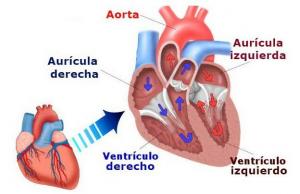Salvia: 11 properties and benefits of this plant
The plant kingdom is wide, and in it we can find innumerable species of plants that form the rich range of living beings that populate the earth.
And many of these plants have shown to have interesting properties in very diverse areas, some of them being consumable for us and even beneficial for our health. Benefits that can include the fact of nourishing us, helping us fight diseases or improve our health or even improve our appearance.
Sage is an example of this, being known and used since Ancient Greece. There are many properties of sage, and that is why throughout this article we are going to focus on reviewing some of the most popular.
- Related article: "Purslane: 12 properties and benefits of this medicinal plant"
What is this plant?
We call salvia a well-known aromatic plant, which is part of the Lamiaceae family (like oregano or basil) and which is widely available and widespread in the Mediterranean countries since ancient times.
It is a type of plant with great versatility in its use. For example, it is used decoratively in beads or in gardening, it is used as a condiment in different stews and cooked and is part of different incenses, perfumes and cosmetics due to its pleasant aroma as well as its effects on health.
Thus, the applications that are given to this vegetable are very diverse, being able to go from the cosmetic industry to food use or even as a medicinal plant. With respect to the latter it is in fact where its name arises, which is derived from the terms salus and salvare (health and save respectively), always emphasizing its positive effects on the organism.
Properties of sage
As you can guess from its constant use throughout history in many areas, there are many properties that sage possesses. Next we are going to explain some of the main ones, especially in what refers to its effect on our health.
Now, it must be taken into account that some of its properties may not be so positive: Its consumption is not indicated in people with kidney problems, allergies, epilepsy or in pregnancy or lactation (It has abortifacient properties). Its oil should not be ingested, since it can be toxic due to components such as terpenic ketones, thuyone or camphor. It can also contribute to seizures and in high doses it can be neurotoxic.
Among the positive properties, the following stand out.
1. Has antibiotic effects
One of the healthy properties of sage stems from the fact that it strengthens the immune system, helping to eliminate bacteria and serving as an antiseptic in case of wounds and infections (reason why it is used as a component in certain mouthwashes or creams).
2. Astringent
The fact that sage contains a relevant proportion of tannins makes it contribute to calm gastrointestinal problems, being able, among other things, to help calm intestinal motility and reduce the emission of excrements (for example in case of diarrhea) given its astringent effects.
3. Rich in antioxidants
The use of sage as a condiment has the advantage of having an interesting amount of antioxidants that hinder oxidative damage to tissues, contributing to healing, skin health (also in cosmetic use) and even helping to maintain the health and functioning of the brain.
4. Lowers blood glucose
Another of the properties of sage is to be hypoglycemic, causing a decrease in blood glucose levels. It does its use useful for diabetics to lower their glycemic level. Of course, as long as it is used only as an aid (never as a substitute for any medication).
5. Invigorates and stimulates the appetite
Sage has been useful for treat muscle weakness, lack of energy, and asthenia. It also stimulates appetite and activity. However, people who suffer from psychiatric disorders such as Bipolar disorder They should avoid its use in this sense, since it can favor the appearance of symptoms.
6. Relieves gastrointestinal discomfort
It has been seen that the tea made with sage shows some usefulness in curbing discomfort and discomfort from minor ailments of the digestive tract, reducing pain and reducing motility gastrointestinal.
7. Relaxing effect
Although apparently contrary to the previous effect, another of the properties of sage is that in infusion it allows muscle relaxation. It has been observed that helps fight insomnia, often used with chamomile, and seems to help lower the level of anxiety despite being invigorating at the same time.
- Related article: "Chamomile: 7 properties and benefits of this plant"
8. It is anti-inflammatory
Sage is a plant with anti-inflammatory properties, reducing for example discomfort typical of gastric or digestive tract problems and contributing to the relaxation of stressed muscles.
9. Contributes to improving gynecological problems
One of its most traditional uses is linked to gynecological disorders and disorders, especially with regard to hot flashes and climacteric disorders. It also supports the menstrual cycle, contributing to the generation of estrogens. Likewise, the aforementioned anti-inflammatory effects also help reduce the discomfort of the cycle.
10. Strengthens hair and skin
Sage is a component that we often find in cosmetics such as creams and oils, promoting healthy hair and being useful in some types of dermatitis and when it comes to keeping the skin disinfected (as well as promoting healing).
11. Promotes cognitive activity
Sage seems to also increase cognitive functionality and studies are even being carried out that seem to indicate that Alzheimer's patients show a slight improvement in activity level and mental functionality, for example in the case of memory.
Bibliographic references:
- Drew, B. T., González-Gallegos, J. G., Xiang, C. L., Kriebel, R., Drummond, C. P., Walker, J. B. and Sytsma, K. J., (2017). "Salvia United: The greatest good for the greatest number". Taxon, 66 (1), pp. 133 - 145.
- Sutton, John (2004). The Gardener's Guide to Growing Salvias. New York: Workman Publishing Company

